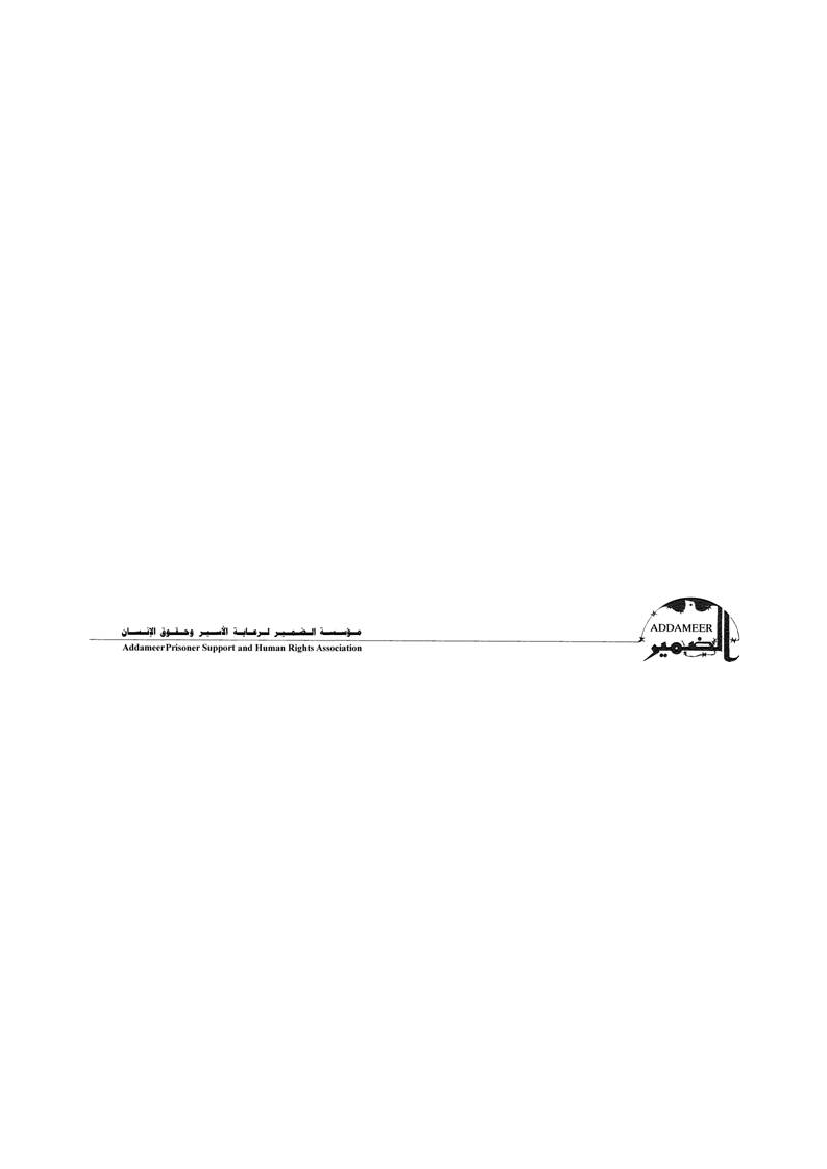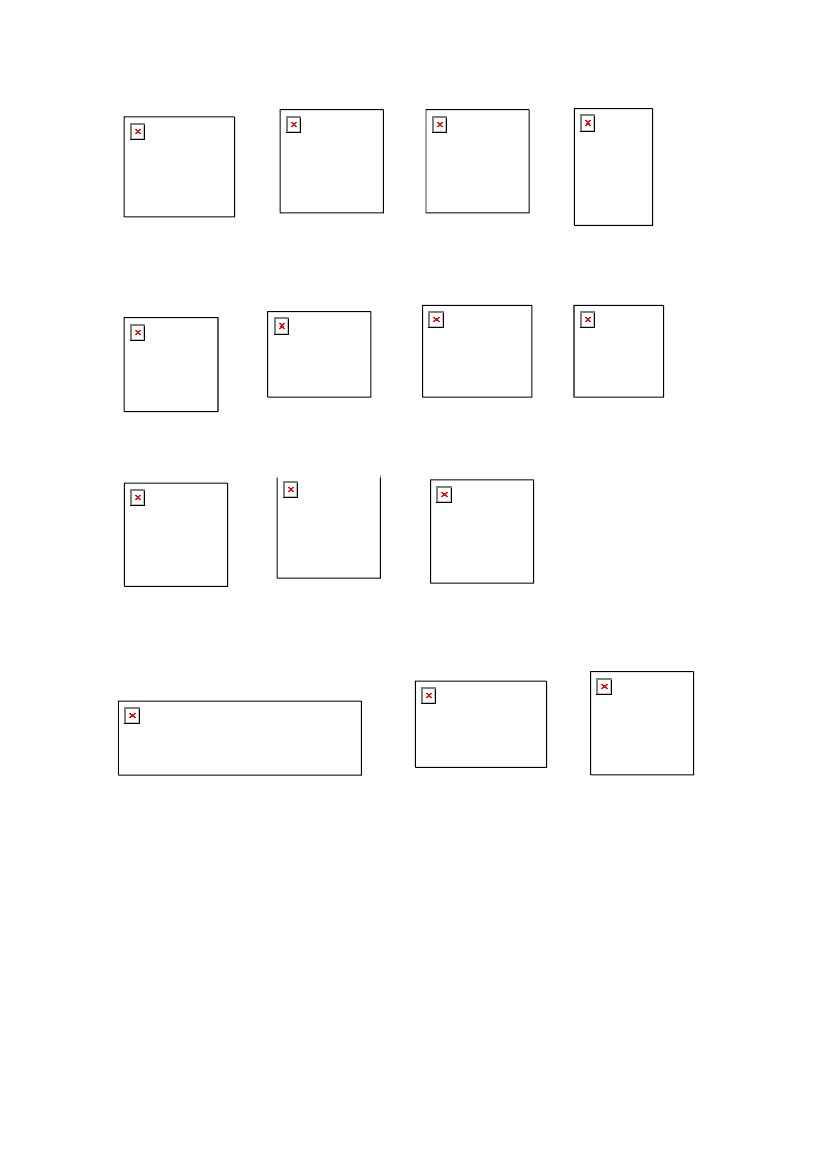Udenrigsudvalget 2012-13
URU Alm.del Bilag 86
Offentligt
Fra:Bodil Heinø [mailto:[email protected]]Sendt:29. januar 2013 10:55Emne:Israel obstruerer FN
TilUdenrigsminister Villy Søvndal og udviklingsminister Christian Friis Bachog til medlemmerne af udenrigsudvalget.Sender jer nedenstående udtalelse fra 14 israelske og palæstinensiske menneskerettighedsorganisationer,som gør opmærksom på, at Israel obstruerer samarbejdet med FN.Personligt har jeg det synspunkt, at FN er og skal være den organisation, som binder verdens landesammen, og som gør det muligt at fremme menneskerettigheder i alle lande. Derfor er det fatalt, at et enkeltland ignorerer FN. Når Israel kan, så kan andre lande også. Konsekvenserne er uoverskuelige.Derfor er det mit håb, at medlemmerne af Folketinget samt ministrene selvstændigt og i samarbejde med deinternationale fora, vi er med i, tager de nødvendige skridt over for Israel med henblik på at få landet til fuldtud at samarbejde med FN.Venlig hilsenBodil HeinøHøjstrupvej 162720 Vanløse38741709
Ramallah, 29 January 2013- 14 Israeli and Palestinian human rights organizations today warnedof the far-reaching consequences of Israel’s refusal to fully cooperate with the United Nations (UN).On the morning of Israel’s second Universal Periodic Review (UPR), scheduled for Tuesday 29January, it remains unclear whether it intends to participate.This lack of transparency will not only mean that Israel avoids rigorous criticism of its violations ofinternational law, but that the entire UPR system will be undermined by the loss of its twofundamental principles: equality and universality.In May 2012, Israel formally announced its decision to “suspend its contact with the Office of theHigh Commissioner for Human Rights (OHCHR), the Human Rights Council (the Council) and itssubsequent mechanisms”.Israel reportedly met with the Council President His Excellency Remigiusz A. Henczel in January2013 and discussed a postponement of its UPR. However, as no formal request has yet beenmade, the Council agreed to proceed as scheduled and to consider on the day what steps to take ifthe Israeli delegation does not attend.These exceptional circumstances have created uncertainty and forced some civil societyorganizations to revise or limit their engagement with the review process due to the risk of
investing necessarily significant resources into a process that may not take place. Thus, a keycomponent of the UPR process – civil society engagement – has been severely hampered.Through this uncertainty, Israel and the Council are setting a dangerous precedent on theinternational stage, one that could be followed by other States refusing to engage with the UN inorder to avoid critical appraisals. Israel’s decision to disengage from core mechanisms of theUnited Nations human rights system has, in effect, resulted in preferential treatment. All but one ofthe 193 UN Member States have attended their UPR as scheduled; in that single instance theState of Haiti was unable to attend due to the humanitarian crisis caused by the 2010 earthquake.Israel should not receive any benefits or concessions for its efforts to undermine the system of theUN and, in particular, its human rights system.To the contrary, the Council should ensure the unobstructed process of Israel’s UPR in accordancewith the principles and standards set in the UPR mechanism, thereby reasserting the condition thathuman rights are more important than political or diplomatic considerations.Moreover, Israel’s move to suspend cooperation with the Council and the OHCHR must be viewedwithin the context of its ongoing refusal to respect the decisions, resolutions and mechanisms ofthe UN. Consecutive Israeli governments have refused to recognize the State’s obligations underinternational human rights law with regard to the Palestinian population of the occupied Palestinianterritory (oPt), obligations repeatedly reaffirmed in statements by UN treaty bodies.Israel also rejects thede jureapplicability of the Fourth Geneva Convention, incumbent upon it asthe Occupying Power, in defiance of numerous UN resolutions, the 2004 International Court ofJustice Advisory Opinion on the Legal Consequences of the Construction of a Wall in the oPt, andcountless statements issued by governments worldwide.In 2009, Israel declined to cooperate with the UN Fact-finding Mission on the Gaza Conflict,headed by Justice Richard Goldstone. Justice Goldstone repeatedly called on Israel to engage, tono avail. More recently, in 2012, the UN Fact-finding Mission on Israeli Settlements in the oPt wasdenied entry into the territory to collect testimonies. The Mission joined a long list of UN SpecialRapporteurs and the Deputy High Commissioner for Human Rights, to whom Israel has alsorefused entry. Furthermore, since his appointment as Special Rapporteur on the situation of humanrights on Palestinian territories occupied since 1967, Mr. Richard Falk has not been allowed toenter the oPt to carry out his work.Within this context, 14 human rights organizations call on the Council to take a firm standconsistent with the seriousness of Israel’s obstructive actions to date.
Adalah - The LegalCenter for ArabMinorities in Israel
Addameer Prisoners’Support and HumanRights Association
AldameerAssociation forHuman Rights
Arab Associationfor Human Rights
Al Haq
Al Mezan Centerfor Human Rights
Badil Resource Centerfor PalestinianResidency and RefugeeRights
Defence for ChildrenInternationalPalestine Section
Ensan Center forHuman Rights andDemocracy
Hurryyat - Centrefor Defense ofLiberties and CivilRights
Jerusalem Centerfor Legal Aid andHuman Rights
Physicians for HumanRights - Israel
Ramallah Centerfor Human RightsStudies
Women’s Centrefor Legal Aid andCounselling



